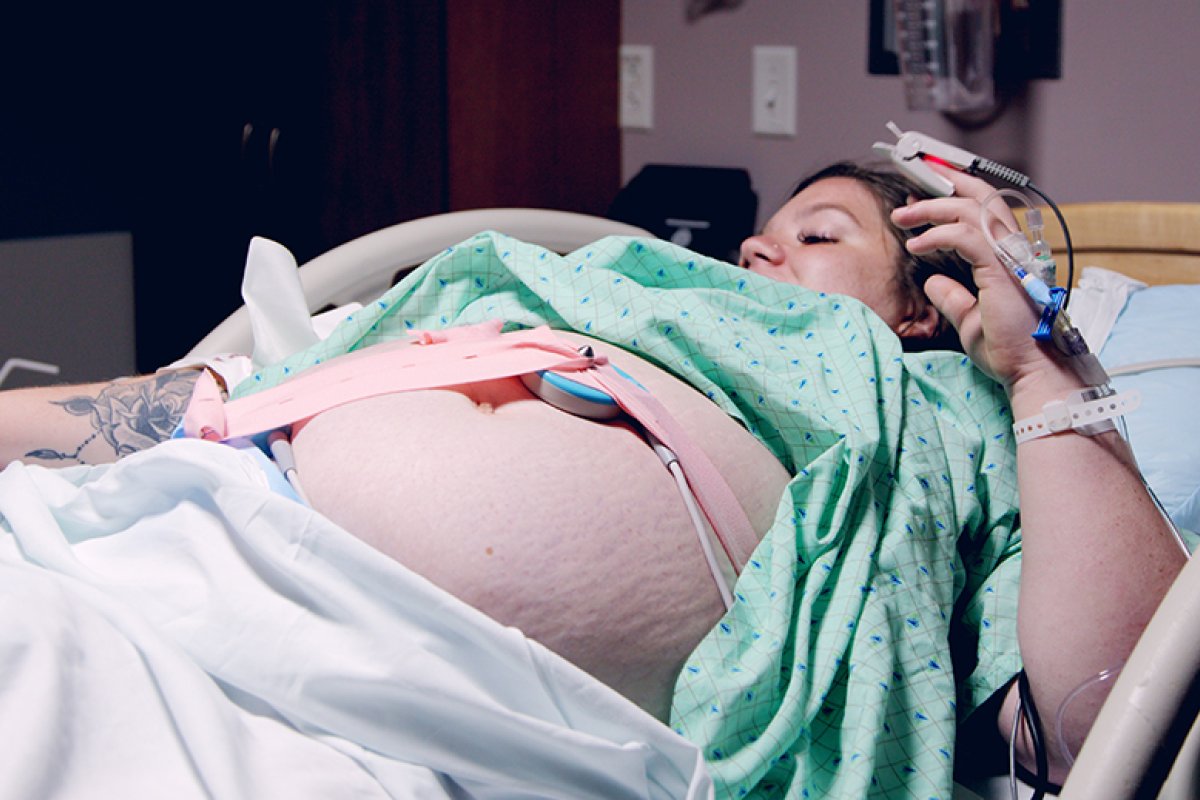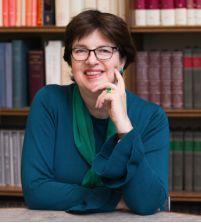
When Women’s Fears are Twisted into Myth
Women should not be the subject or target of myth as they should not of any anti-abortion legislation. Rather, they should have the central and deciding voice in all matters regarding pregnancy care and childbirth.
By Willemien OttenApril 13, 2023
Recent abortion bans around the country have heightened women’s fears that they are no longer medically safe in case they have to endure difficult pregnancies and, especially, critical deliveries. Many women have taken to TikTok to voice their fears over births that could be life-threatening for them. Their reason for going on social media is not just to spread the word about their health risks but to literally plead for their own lives, seeing such openness apparently as the best way to protect themselves. Propelled by the fear that the life of their baby may mean the sacrifice of their own, they are creating “living wills” to prioritize the need to save their own lives.
When I read about this in an article on CNN, its apparent aim was to dispel this fear as a “childbirth myth.” Doctors denied that women had to worry because rarely is there need to make a choice between mother and child. The burgeoning trend on TikTok of “living wills” could hence be dismissed as noise from hysterical women.
But is the article right? Is it indeed a myth that there is no potential harm to pregnant women? Or is the true myth being perpetuated here that these women’s fears have no basis, as if we can all rest assured that the recent abortion bans will not have any long-term adverse effects on medical care for women in labor and new mothers? When, in other words, is a childbirth myth really a myth? As a scholar of religion, I am constantly on guard against casual employment of the term “myth”, knowing how much it is caught up in structures of authority made murky by being overlaid with sacrality. In an interesting case of life amplifying work, I happen to have relevant experience as a mother, too.
Over two decades ago, our oldest daughter was born without much incident, but I was in grave danger right after delivery. My placenta did not leave my womb, which led to massive bleeding and an emergency hysterectomy. While still in the ICU, doctors were glancing at us with a worrisome look, since we would not be able to have more biological children. When I was fighting to stay alive during my hours-long surgery, my husband was counseled to go see our newborn daughter. This was no doubt well-meaning advice intended to calm and console him, but it also was a subtle nudge that the arrival of new life might have to compensate for the possible loss of my own. He told me later he could not bring himself to do so, waiting nervously outside the operating room instead.
Stumbling across the CNN article recently made me rethink the advice to my husband to go see our daughter in a more sinister way. What do we really know about the long-term effect of abortion bans on medical care for women? We already know that segments of our society value born life much less than “unborn life,” which has become surrounded by a mystique of transcendent proportions. Once children are born, however, their education is not guaranteed nor is their healthcare, while we do preciously little to protect them against gun violence.
If there is such a drop-off in protection from unborn to born life for children, is it not a logical step to think that mothers have good reason to be concerned about their own well-being precisely at childbirth, the crucial moment of transition when the newborn is still tinged with the mystique of “unborn life”? It does not seem a stretch to think that the fact that in many states pregnant women no longer have legal protection for abortion can easily lead to a weakening of their overall medical care and the long-term devaluing of their lives. If childbirth seems to be valued above all other medical health issues for women to the point of disempowering them, will it not also be valued at the expense of other medical health issues for women?
What worried me most of all in the CNN-article is that the express will of women – as manifested in their “living wills” posted on TikTok – was seamlessly turned into an anonymous medical predicament, one about which pregnant women themselves can no longer pronounce with any kind of authority. Apparently only doctors can, doctors who in many states are explicitly forbidden to respect women’s wills. An article about women feeling disempowered could thus end up further marginalizing their personal voices by invalidating what they considered a last resort.
Myths in the study of religion are holistic scenarios that have a popular appeal, give creative meaning, hold a community together, but do not contain (f)actual truth. Contrary to the article’s message, too much is unknown at present to rule that the “living wills” posted on TikTok are myths in such a truth-defying sense. We simply cannot oversee the consequences of living in a culture that increasingly sees women’s bodies as vehicles for procreation or incubators of new life. Dismissing their anxieties and desires out of hand thus amounts to a form of gaslighting.
The radical refusal to take concerned women’s personal voices seriously – whether in the “living wills” on TikTok or the many pro-choice protests around the country – taps into another, much more ominous sense of myth, one that has been used over the centuries and across religions to assign certain groups of people their fixed place in a faceless overarching religio-political order. That faceless order, currently becoming unmasked in the Republican-Christian conservative legal race to the bottom (i.e., Supreme Court) to establish a national abortion ban, is eager to tell women that all will be well even as it is left open whether they themselves will be well or whether they will have a say in any medical decision about their well-being.
In both cases, I contend, women should not be the subject or target of myth as they should not of any anti-abortion legislation. Rather, they should have the central and deciding voice in all matters regarding pregnancy care and childbirth, as it is not just their bodies but their lives to which “unborn life” has been entrusted.
To hear further discussions related to this topic, please join us at the Religion and Reproductive Politics conference at the Divinity School from April 20 – 21, 2023. Learn more here.
Image from Unsplash


